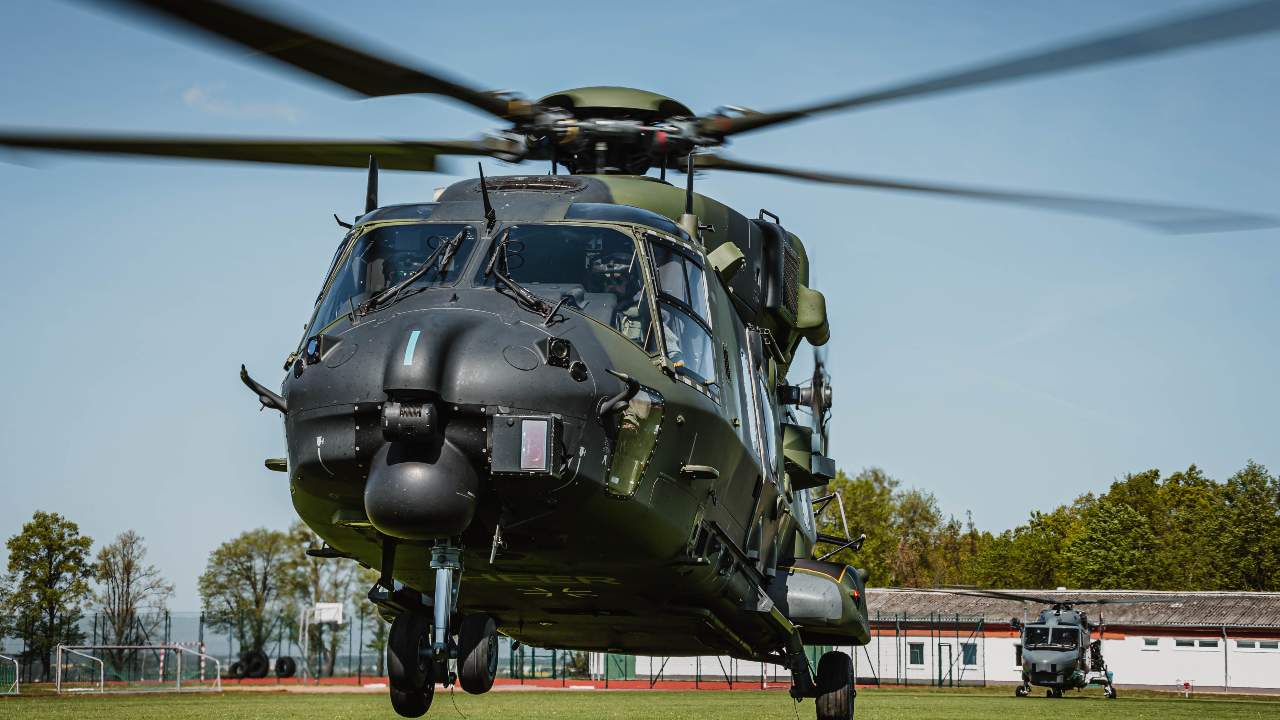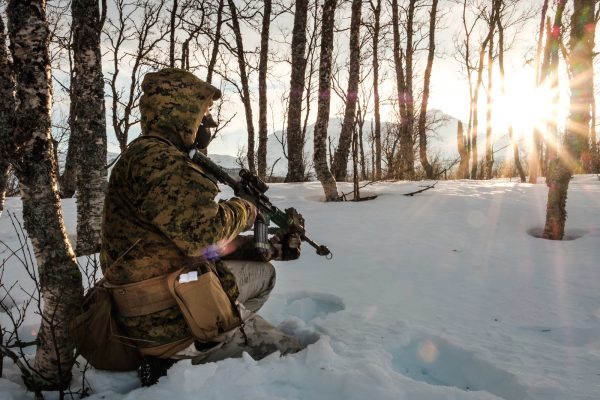Germany’s Chancellor Olaf Scholz made an eye-catching promise in his Zeitenwende speech just after Russia’s latest and biggest invasion of Ukraine in February. He pledged a €100bn ($107bn) special fund for the country’s hollowed-out military. This is equivalent to two years’ defense budget, an enormous sum.
Late on May 29, an agreement was reached between the so-called traffic light coalition of Social Democrats, Greens, and the Liberal FDP, and the right-wing opposition groups, to deliver the required two-thirds Bundestag majority required to create the fund.
There were serious differences, but the traffic light government had little choice but to accept opposition demands since failure would have called the entire governing coalition into question.
A procurement list for the German Armed Forces is to be created to decide exactly how the fund will be spent. This is far more than just a domestic issue — it will be watched closely by the US, the country’s European allies, and especially the Central and East European countries that have been warning Germany for many years that its policy on Russia has been overly accommodating, not to say naïve and complacent.
Germany will also now fully commit to the NATO pledge to spend at least 2% of its GDP on defense. Largely ignored during the chancellorship of Angela Merkel, this late promise to meet an eight-year-old commitment will be solved by the Special Funds law, though as an average spend over multi-year periods. The talk soon after Russia’s latest invasion — that the country should exceed 2% — has been dropped.
So with the bank account brimming with cash, Germany’s military can now go on a much-needed spending spree. Or can it? The signals from the chancellor suggest he has his own plans on how and where the money should be channeled. Top of his list appears to be the long-discussed missile defense system for the homeland. This was originally costed at about $4.5bn for a now-abandoned German-produced system, but said to cost around $2.2bn if purchased from the US or Israel.
Shortly after the chancellor made the decision on the Special Fund at the end of February, he consulted the Bundeswehr Inspector General about the acquisition of missile defense. The system could be based on the Israeli Arrow 3 missile, or US-made THAAD or Aegis. It may be up and running by 2025 onwards.
Thanks to such a system, say Scholz’s group of experts, Germany might even provide anti-missile security for Poland, Romania, or the Baltic states But this is a far from universal view. According to critics, the idea would not even provide protection for the whole of Germany. The issue is fairly clear — Germany is much bigger than Israel and faces a much more sophisticated enemy with a much wider range of missiles than the Iranian-supplied Hamas in Gaza. Anti-missile systems can be popular with voters and with manufacturers, but can fail when overwhelmed by huge numbers. Some military analysts suggest it is preferable to buy offensive missiles as a deterrent, rather than try to swat away incoming barrages.
The German armed forces have a huge shopping list, after years and years of very low defense spending, and after endless plans to upgrade were blocked at the political level, often by Scholz’s Social Democrats. It needs everything from F-35 stealth aircraft to heavy-lift helicopters, ammunition, combat boots, and even underwear — the list is enormous. But the ability of a poorly equipped force to digest large influxes of new kit and capabilities is questionable. It may take many years to put right, even if the government can decide on a military strategy, which it currently lacks. The FDP Finance Minister Christian Lindner stated that, “Our goal is to have one of the most capable, powerful armies in Europe in the course of this decade,” but it is unrealistic to expect much change for several years.
Meanwhile, the gulf between the inspirational phrases in Chancellor Scholz’s Zeitenwende speech and his government’s actions continue to widen. Germany’s words have been at odds with Germany’s deeds. Despite the Bundestag’s decision on the delivery of heavy weapons, almost nothing has been dispatched. There are signs that the government is responding to criticism — on June 1, Scholz announced that he will send IRIS-T medium-range missiles to Ukraine, although it will be “months” before they arrive.
The slow-motion supply of advanced equipment has been a central criticism of the coalition’s approach. And the chancellor’s language has been odd; he still refuses to say even that he wants Ukraine to win, instead using the baffling formula that it must not lose. This has created deep anger and confusion, both among pro-Ukrainian voices in Germany, in Ukraine itself, and in Central and Eastern Europe, which has a deep fear that German ambivalence foreshadows its likely behavior should a NATO ally in the region come under Russian attack. Poland’s President Duda has accused Germany of breaking its word on advanced weapons supplies.
What is driving this seemingly counter-productive behavior? It may simply be a German fear of change, despite its accurate analysis that the invasion marked a radical turn in European security. The large investments in the defense budget are indeed necessary, there is no question about that. But it should not be forgotten that these investments are being made under the conditions of a war caused by Russia. This has presented an existential threat to the European security order. There is perhaps a sense that Germany’s ability to translate analysis into policy has failed, or at least is inadequate.
One strategic change would have to be the recognition that Putin’s Russia cannot be a partner, and that the Ostpolitik-lite of the past 30 years was an illusion. Instead, Germany will need to develop better relations with countries to the east with a history of Russian occupation. These countries — Poland, the Czech Republic, Slovakia, the Baltic states, Romania, Bulgaria, Moldova, and Ukraine — urgently need Germany’s active support.
A German failure to act, or a half-hearted, foot-dragging policy will simply increase suspicion among its eastern partners that it lacks serious commitment to peace in the neighborhood. Likewise, too great a focus on missile defense for the homeland will fuel a belief that the country is defining its defense in the narrowest terms. The Greens have grasped at least some of this, as has the FDP. It is very much an issue for Scholz and his Social Democrats.
Most important is an understanding of what the war means right now. For Ukraine it means the lives of millions of citizens dying, fleeing the Russian war machine destroying their homes and towns. For Germany and Europe as a whole, this threatens the most basic foundations of continental security and independence.
The German Zeitenwende was proclaimed exactly for this purpose, to counter this challenge with a radical reorientation of foreign policy and greatly increased defense spending. The common purpose of European security can only be achieved through unified action by independent democracies. It would be a good outcome for everyone if Olaf Scholz’s regular references to close cooperation with transatlantic partners and an understanding of common interests, were translated into urgent governmental action.
Oxana Schmies is a postdoctoral researcher and analyst based in Berlin. She has held post-doctoral positions at the University of Erfurt, Humboldt University of Berlin, and the Center of Liberal Modernity (LibMod) in Berlin.




